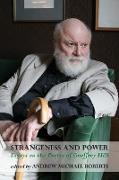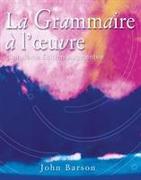- Start
- Strangeness and Power
Strangeness and Power
Angebote / Angebote:
In one of his final publications, Geoffrey Hill asserts his commitment to 'the strangeness and the power of poetry'. The words accord with many readers' responses to Hill's own poetry. It is generally seen as 'powerful', in rhetorical, formal, intellectual and emotional terms, and is much concerned with issues of political and aesthetic power. … 'Strangeness' may here stand for the remarkable distinctiveness of his poetry, which over more than sixty years, from the mid-1950s to his death in 2016, followed a trajectory of development and innovation which engaged in unique ways with many of the crucial questions in late twentieth century and early twenty-first century poetics: the lyrical and the anti-lyrical, Romantic, Modernist and earlier inheritances, form and formal innovation, the personal and the impersonal, history and ethics. But more than that, the word suggests the way in which that poetry is somehow 'strange' and much concerned with strangeness, in both negative and positive terms: estrangement, peculiarity, revelation. Hill's writing fulfils to a high degree the Russian Futurist aim of 'making strange' the familiar, as well as bringing to the reader's attention, through its learning and allusion, aspects of history and culture which are likely to be unfamiliar to many. For some readers, Hill's late work in particular is simply too 'strange': too resistant to reading and understanding. Both his admirers and his detractors, and those who come somewhere between, might acknowledge qualities of strangeness, even that if judgment would carry different implications and values in each case. A number of essays in this volume pair Hill with another poet, or poets, to consider his 'strange likeness' with contemporaries and predecessors." -from the editor's Introduction to this volume
Folgt in ca. 10 Arbeitstagen




